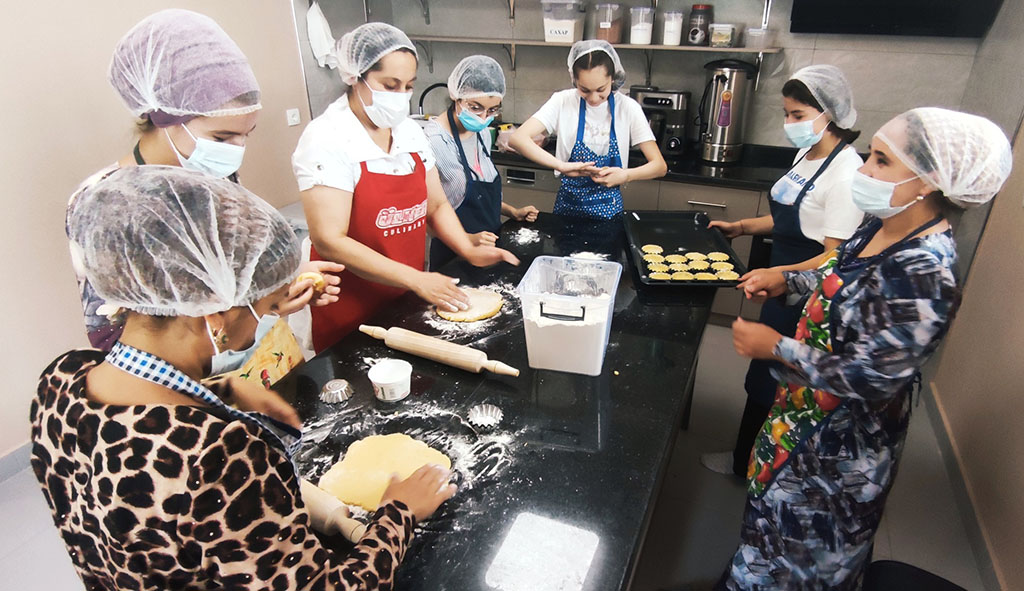In 2020-2021, there were 758 inquiries documented in the REAct system in Tajikistan, 255 of them from women suffering from stigma, discrimination and domestic violence. That is every third case registered by REActors in Tajikistan. These statistics once again confirm the fact that the situation of women, especially those representing vulnerable populations, in Tajikistan is still quite challenging.
Today, we would like to share one of such cases as it not only shows the limit to which a woman can be pushed, but also describes how support can be provided effectively in such cases.
“Hello, can you hear me?”
In response to the COVID-19 pandemic and quarantine restrictions, in October 2021 REActors in Tajikistan launched a hotline to provide remote consultations to people suffering from domestic violence and rights violations. Bitter revelations, tears, and aggressors’ remorse – the operators heard a lot of confessions in a few months of the hotline operation:
“Sometimes women are insulted and beaten for years,” says Farishtamokh Gulova, one of the consultants. “They don’t want to break up the family and leave children without their father. Besides, it is often difficult to divide the joint property. However, sooner or later it all ends and victims find the strength to call us. We try to help everybody as we truly believe that there is always a solution.”
Farishtamokh Gulova, National Coordinator of the REAct system in Tajikistan

On 25 February 2022, there was a call to the hotline 8885. Farishtamokh answered the call. Nigora (name has been changed) was stressed and crying desperately. She said that she had a conflict with her relatives at home, where she left her five-month-old breastfeeding baby. Her voice was trembling from cold, she was in the street. The woman hung up, but a passer-by picked up the phone and said that she was standing near the building of the General Prosecutor’s Office. She was undressed, doused with gasoline and wanted to set herself on fire.
The information that the woman was next to the General Prosecutor’s Office helped Farishtamokh to quickly find a solution. She called the police and asked the young man who called her to stay with the woman. Another woman approached them on the street and covered Nigora with her coat. They took her to the shelter of the building. The guards of the General Prosecutor’s Office asked them to leave. However, they stayed as they saw how desperate the young woman was.
We need to help her
When she came to the venue, Farishtamokh asked the young woman to calm down. They took away her lighter and called the ambulance. Farishtamokh realized that she had to focus on cooperating with the doctors to take the woman to the hospital and help her. In the hospital, Nigora took a shower and stayed for the night.
It turned out that she had two small children, her husband was a migrant and she lived with her mother-in-law. The older woman insulted and humiliated her daughter-in-law all the time. She did not like it that the young woman did not work (as she was taking care of her breastfeeding baby and had not fully recovered from her difficult childbirth). The mother-in-law threatened to kick the young woman out of her house and started beating her. As Nigora does not have a job, she did not have any money and was fully dependent on her mother-in-law, which allowed the woman to fully control her daughter-in-law and put emotional pressure on her.
Farishtamokh offered the young woman to stay in the Caravan of Hope shelter for a while. Nigora agreed, but first she had to make sure her children were back with her. At her own initiative, Farishtamokh called the local Committee for Women and Family in Dushanbe. Consultants from the NGO “Equal Opportunities” already worked with this committee, so now they organized provision of the required support to the young woman. First, they found Nigora’s parents, took the baby from her mother-in-law and brought it to Nigora. Her health and psychosocial situation improved and she did not want to commit suicide anymore.
Farishtamokh took Nigora’s passport and drafted a complaint on her behalf to the Committee for Women and Family at the local executive body (khukumat). Then the consultant accompanied with the committee’s representative and the head of mahalla (local community – REACT), deputy Sayora Ashrapova, went to visit Nigora’s parents. The deputy talked to her parents, first of all to her father, and tried to explain what happened and convince them that the family should support their daughters in any situation, under any circumstances. However, her father was adamantly opposed to Nigora coming back to her parents’ house. They had to choose a different approach.
The consultants waited for the young woman to fully recover. She was enrolled in a short-time baking course in the Caravan of Hope shelter where she stayed during her rehabilitation. There, Nigora met other victims of domestic violence. She worked with a psychologist and was able to recover.
In March, consultants went to her mother-in-law’s house with representatives of khukumat, mahalli, and local Committee for Women and Family to talk to her. She explained that with her actions the woman broke the law and according to the new regulations* she could bear administrative and even criminal responsibility. This conversation had a positive impact on the older woman’s behavior and her attitude to Nigora.
Instructions to the Committee on the Rights of Women and Families
State program for the prevention of domestic violence in the Republic of Tajikistan for 2014-2023
Regaining strength to find yourself… again
As a result, Nigora went back to her husband’s house. She learned to bake and was now a very good cook, selling her own cakes. She started making some money, at the same time taking care of her children. Nigora still receives support. The deputy and the local Committee for Women and Family take care of her family as according to the new government resolution and the order on reinforcing the role of the family, all families are to be protected and preserved. Farishtamokh continues providing consultations to the young woman. She is happy that Nigora has changed and realized that marriage is not an easy thing. She was shown another side of the life and was able to see that her life is more than she used to think. They also work with Nigora’s mother-in-law, who is now happy with the young woman.
“Out hotline now only documents the cases but also cooperates with other government agencies and civil society activists so that the victims of domestic violence, in particular women, could build their potential, acquire new skills and strengthen their role in the family,”
tells Farishtamokh
As a reminder, you can report a case of violation of your rights and get support using REAct. Describe the details of the situation that happened to you, how and when your rights were violated, and the reactor will contact you to help solve the problem.
Read also:
The invisible barrier: how fear makes one silently endure
Positive marriage: in Tajikistan, HIV-positive status is an obstacle to marriage registration





